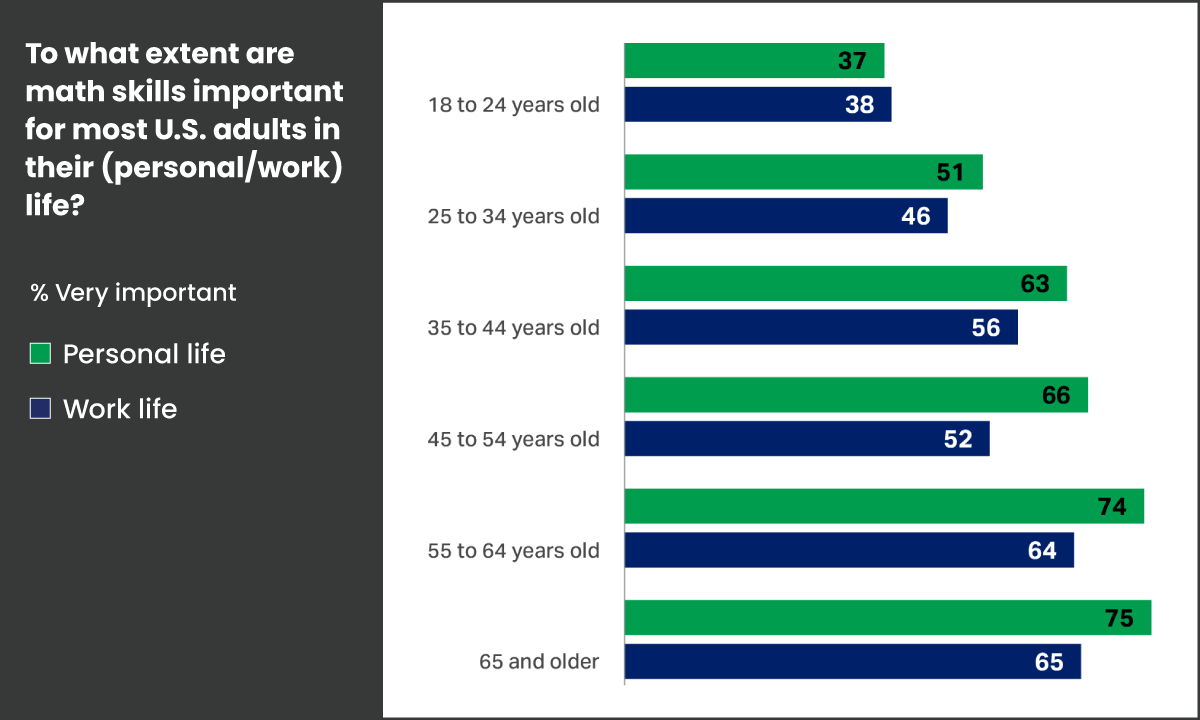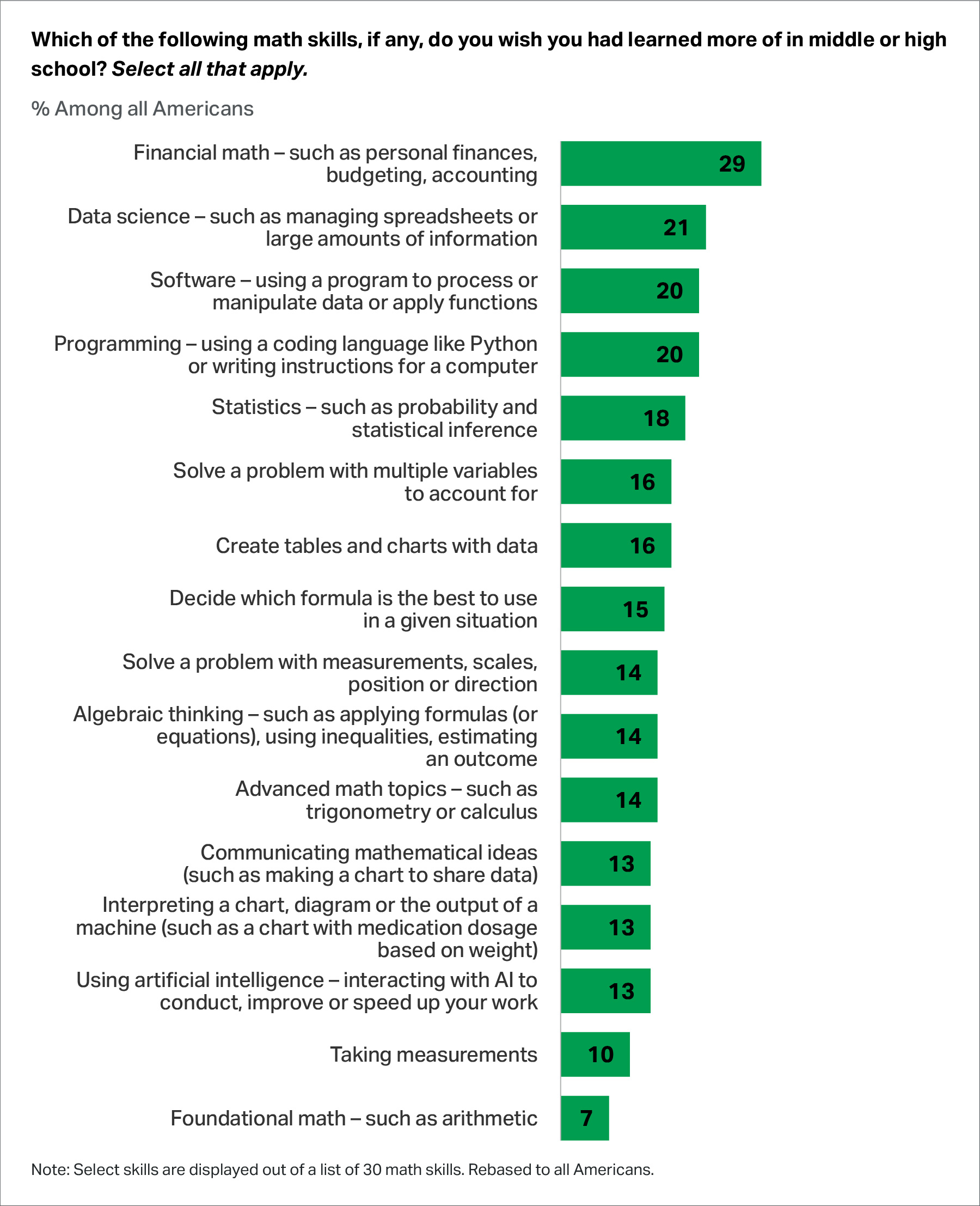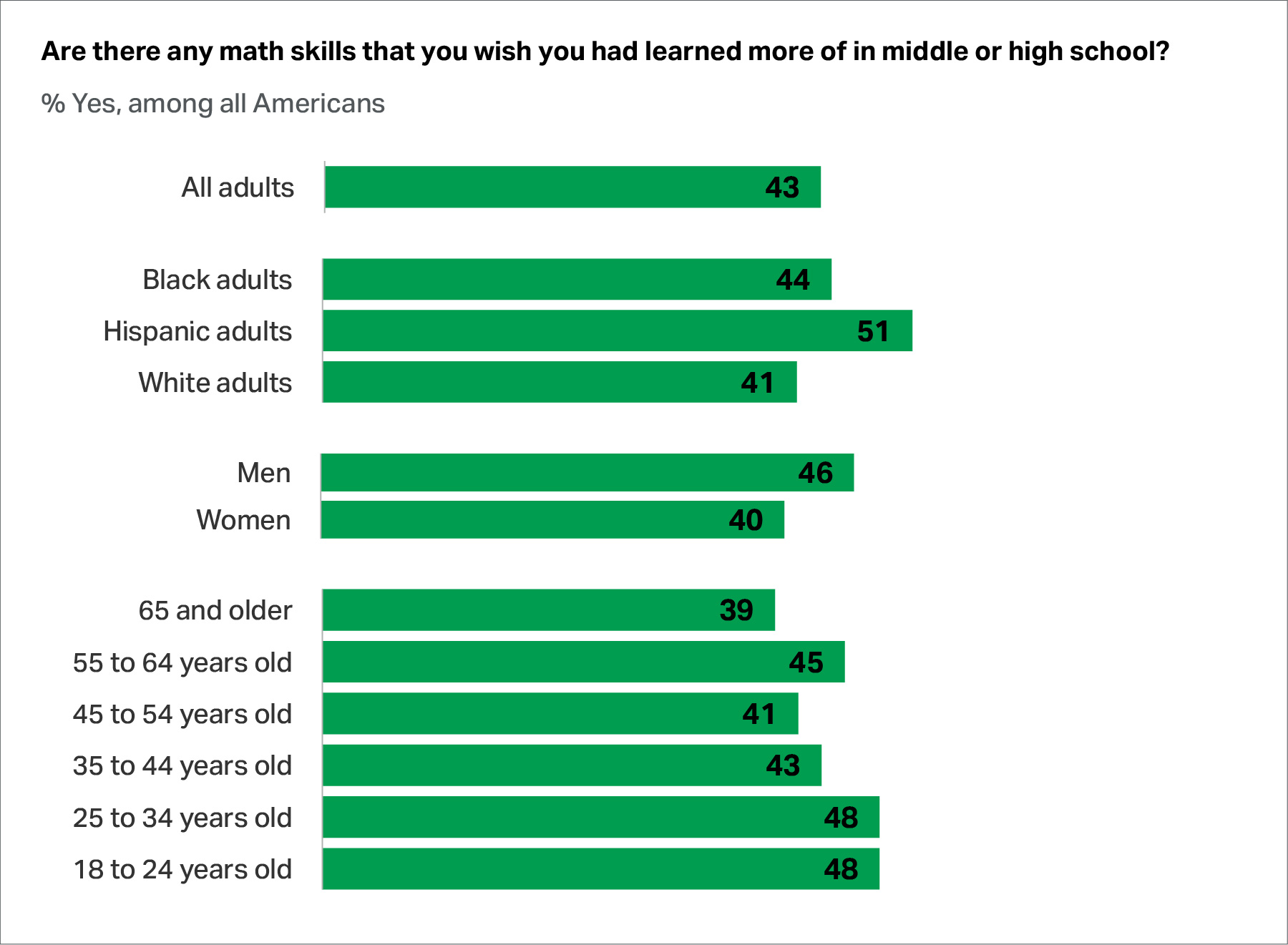New Gallup Poll: Many American Adults Wish They Had More Math Skills
A vast majority of more than 5,000 respondents said the subject is important in both their personal and work lives; managers note a lack of skills.

Get stories like this delivered straight to your inbox. Sign up for The 74 Newsletter
Four in 10 U.S. adults wish they learned more math skills in middle or high school, according to a new Gallup poll. An overwhelming majority, 95%, said the subject is very or somewhat important for work — and 96% said the same with regard to their personal lives.
Mathematics has long been a challenge for U.S. students — they have made only modest gains in the subject during the past five decades — and have yet to recover from the pandemic. Scores have remained largely flat, and where gains have occurred, it’s been predominantly for high achievers.
Recent studies show math competency is critical for adult success: the subject has an even greater impact on earnings than reading. States and cities across the country — alongside philanthropic heavy hitters — are investing millions to boost student performance in the subject.
“In terms of a change on the K-12 level, I think it’s fair to say that the changes we should consider are not just about more math — we know U.S. adults believe it to be important and say it should be prioritized — they’re also about more impactful math that is relevant to students’ needs,” said Andrea Malek Ash, senior research consultant at Gallup.

Gallup respondents listed financial math skills, data science, software and programming as the most desired out of a list of 30 math topics. The organization surveyed two groups in December 2024: 5,136 U.S. adults ages 18 and older — including 808 parents of children enrolled in K-12 — and 2,831 managers.
It found nearly all U.S. adults surveyed see math as important in their lives: 55% said such skills are very important in their work life while 40% said they are somewhat important.
Sixty-three percent said math skills are very important in their personal life while 33% called them somewhat important.

Financial math, including personal finance, budgeting and accounting, ranked among the most desired skills regardless of gender, race and ethnicity or educational background.
Among the 16% of Americans who describe high school math as “not at all” important or “not too important”, 81% say they held this view because high school math is more advanced than what is needed for the real world, among other reasons.
The survey found, too, that older Americans are more likely to value math than younger ones: 75% of those 65 and older said it is very important for most adults in their personal life, compared with 37% of those ages 18 to 24, Gallup found. The same held true for work life.
Asked to compare math with other topics in school, 6 in 10 U.S. adults said it should either have a “higher priority” or have “the very highest priority” in learning.
Gallup, with support from the Gates Foundation, reports that managers noted a lack of skills in this area among their employees: 85% said they wish their direct reports had more math skills in at least one area, citing financial math as their top concern.
Nearly 6 in 10 managers say that in the next five years it’s very or somewhat likely that they will need to hire more people with data science skills.
The public seems to feel the same: speaking of the workforce generally vs. their own lives, 61% of respondents said math skills are “very important” in the workforce. While reading, language and technology skills ranked higher — at least 68% found each to be very important — math outranked leadership skills.
Not surprisingly, Americans report having “complex emotions toward math,” according to Gallup: 60% said it makes them feel challenged, while 24% said they were confused by the subject. Just 1 in 5 said they were excited by math.
The survey’s results reflect this tension, said Justin Lall, principal for global analytics at Gallup.
“Americans can overwhelmingly feel that math is challenging, but demand more of it,” Lall said. “It bucks the narrative that we’ve had that math is not for everyone.”
Parents’ anxiety about their own math skills plays a profound role in their child’s experience. Gallup found this is acted out in practical terms at the kitchen table: Parents with positive feelings toward math are nearly twice as likely as those with negative feelings to express confidence in their ability to help their children with math homework.
Survey responses varied based on gender, race and educational attainment: 54% of men and 42% of women have exclusively positive feelings toward math while 46% of Black respondents and half of white adults said they have only positive feelings toward the subject.
Just 37% of Hispanics said the same as did 53% of those with a bachelor’s degree and 44% of those without a college diploma.
The Gates Foundation sponsored the Math Matters Study The Value of Math in Work and Life and provides financial support to The 74.
Get stories like these delivered straight to your inbox. Sign up for The 74 Newsletter

;)
